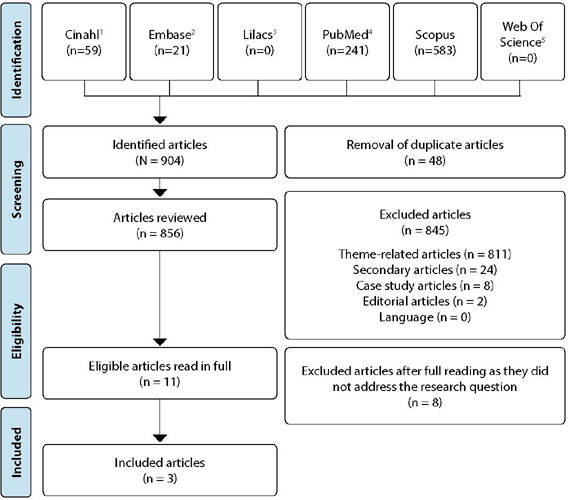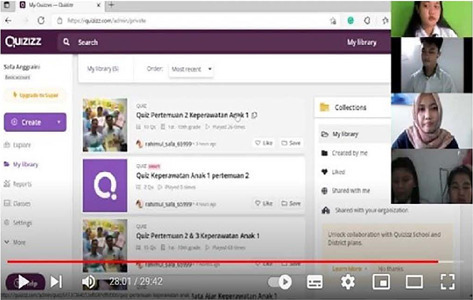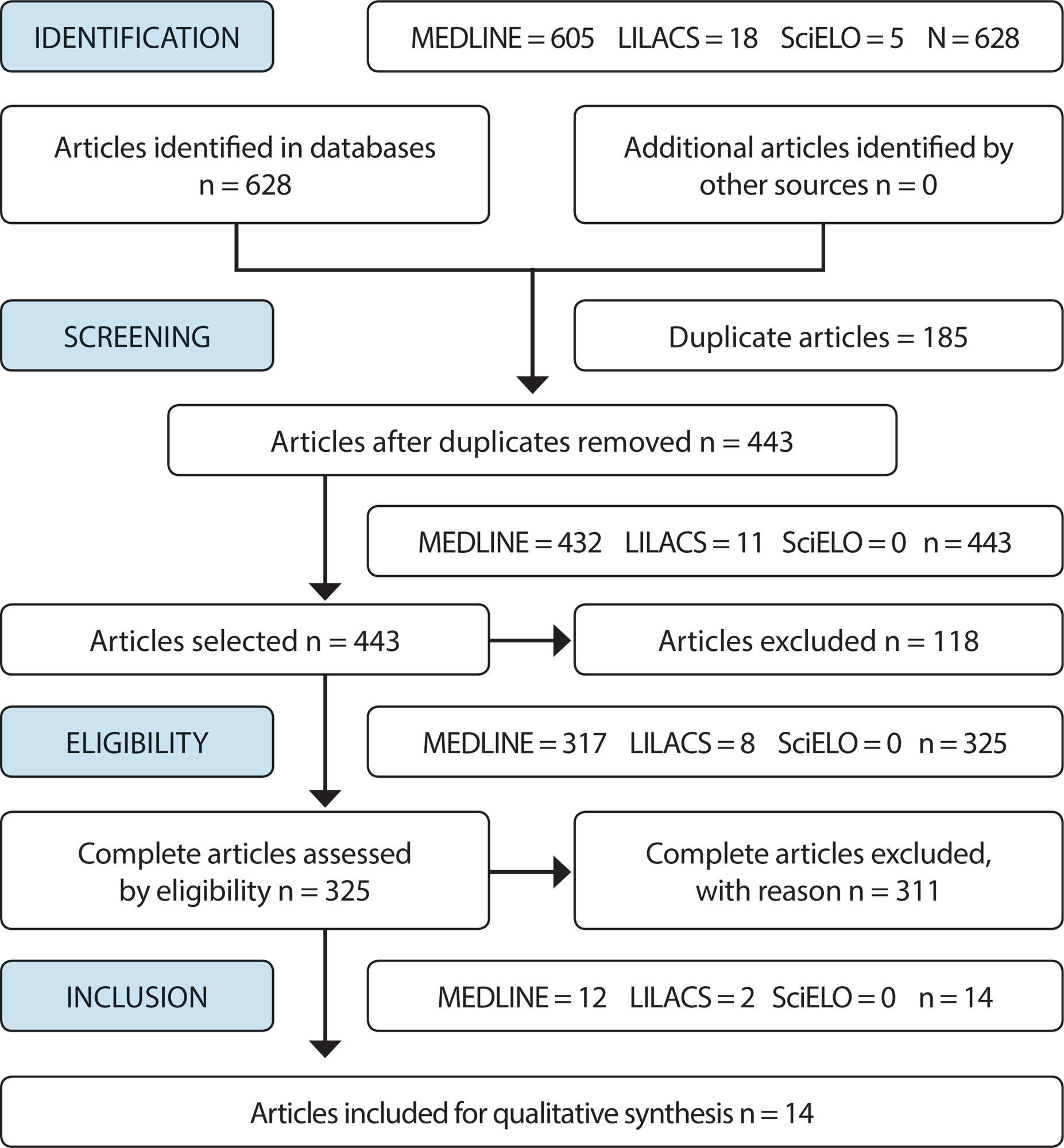-
11-10-2023
Time to act sustainably: Why can’t we wait any longer?
Revista Brasileira de Enfermagem. 2023;76(5):e20220813
Abstract
Time to act sustainably: Why can’t we wait any longer?
Revista Brasileira de Enfermagem. 2023;76(5):e20220813
DOI 10.1590/0034-7167-2022-0813
Views0See moreABSTRACT
Objectives:
to raise reflections on the need for health services and professionals to implement sustainable actions, aiming at their own survival and that of the planet.
Methods:
reflective essay based on international reports regarding the impact of climate change on people’s health and the role of institutions in this context.
Results:
the article focused on three fundamentals: climate change continues to be a threat to the health and well-being of all beings on Earth; the institutions that should contribute to health are great agents of contamination of the environment and emission of gases that aggravate the greenhouse effect; and there are several benefits for health institutions to act sustainably.
Final Considerations:
we cannot wait any longer; we must develop policies and management models aimed at environmentally responsible, economically viable, and socially more collaborative healthcare.
-
REVIEW11-10-2023
Applying Lean Healthcare in the hospitalization and patient discharge process: an integrative review
Revista Brasileira de Enfermagem. 2023;76(5):e20220751
Abstract
REVIEWApplying Lean Healthcare in the hospitalization and patient discharge process: an integrative review
Revista Brasileira de Enfermagem. 2023;76(5):e20220751
DOI 10.1590/0034-7167-2022-0751
Views0See moreABSTRACT
Objectives:
to identify scientific evidence regarding the use of Lean Healthcare approach in the hospitalization and patient discharge process.
Methods:
this is an Integrative Review conducted in the PubMed, LILACS, SCOPUS, CINAHL, Web of Science, and Embase databases.
Results:
out of 904 records identified, three were included in this review. The studies demonstrated that when applied to discharge planning, the Lean philosophy brings favorable results, promoting improvements in the communication process, as well as assisting in workflow organization, with a reduction in length of stay and improvement in the quality of care.
Final Considerations:
although the Lean methodology presents positive results, it is considered that the application of the philosophy in healthcare institutions is still not sustainable, as it is often restricted to specific departments or services. Thus, to maximize the success of implementation, the Lean philosophy needs to be incorporated into the organizational culture, representing the greatest challenge.

-
11-10-2023
A eficácia do uso de livros interativos multimodalidade em enfermagem pediátrica na implementação do programa Merdeka Belajar
Revista Brasileira de Enfermagem. 2023;76(5):e20220599
Abstract
A eficácia do uso de livros interativos multimodalidade em enfermagem pediátrica na implementação do programa Merdeka Belajar
Revista Brasileira de Enfermagem. 2023;76(5):e20220599
DOI 10.1590/0034-7167-2022-0599
Views0See moreRESUMEN
Objetivos:
analizar la efectividad del uso de libros interactivos multimodales en enfermería pediátrica sobre los resultados de aprendizaje de los estudiantes en la implementación del Programa Merdeka Belajar.
Métodos:
investigación cuasi-experimental con un diseño de grupo de control posterior a la prueba. En este estudio, la muestra incluyó 52 estudiantes de enfermería del cuarto semestre del Instituto de Ciencias de la Salud Suaka Insan Banjarmasin que recibieron el curso de Enfermería Pediátrica. Fue utilizada la técnica de muestreo total y la prueba t dependiente en el análisis de datos.
Resultados:
el libro interactivo multimodal de enfermería pediátrica fue efectivo en la mejora del logro de aprendizaje de los estudiantes de cuarto semestre con un valor de significancia de 0,015 < 0,05. Hay una diferencia en el valor promedio de los cursos de enfermería pediátrica para la clase A y la clase B, que es de 3,173.
Conclusiones:
el uso de libros multimodales interactivos es muy bueno para que los profesores los apliquen en la enseñanza para ayudar a los estudiantes a comprender el material que están aprendiendo.
-
11-10-2023
ERRATA
Revista Brasileira de Enfermagem. 2023;76(5):e2023n5e04
Abstract
ERRATA
Revista Brasileira de Enfermagem. 2023;76(5):e2023n5e04
DOI 10.1590/0034-7167.20237605e04pt
Views0No artigo “Primeira graduada do Mestrado em Enfermagem em Prática Avançada em Oncologia no Chile”, com número DOI: , publicado no periódico Revista Brasileira de Enfermagem, 2023; 2023(Suppl 4):e76suppl401, no segundo parágrafo:Onde se lia:[…]See more -
ORIGINAL ARTICLE11-10-2023
The effectiveness of using interactive multimodality books in pediatric nursing in implementing Merdeka Belajar program
Revista Brasileira de Enfermagem. 2023;76(5):e20220599
Abstract
ORIGINAL ARTICLEThe effectiveness of using interactive multimodality books in pediatric nursing in implementing Merdeka Belajar program
Revista Brasileira de Enfermagem. 2023;76(5):e20220599
DOI 10.1590/0034-7167-2022-0599
Views0See moreABSTRACT
Objectives:
to analyzing the Effectiveness of Using Interactive Multimodality Books in Pediatric Nursing on Student Learning Outcomes in Implementing the Merdeka Belajar Program.
Methods:
the research design used a quasi-experimental approach with a posttest control group design. The sample in this study was the fourth-semester nursing students of Institute of Health Science Suaka Insan Banjarmasin who received the Pediatric Nursing course, a total of 52 students. The sampling technique used is total sampling. Data analysis used the dependent t-test.
Results:
the interactive multimodality pediatric nursing book was effective in improving the learning achievement of fourth-semester students with a significance value of 0.015 < 0.05. There is a difference in the average value of pediatric nursing courses for class A and class B, which is 3.173.
Conclusions:
the use of interactive multimodality books is very good for lecturers to apply in teaching to help students understand the material they are learning.

-
ERRATUM11-10-2023
ERRATUM
Revista Brasileira de Enfermagem. 2023;76(4):e2023n4e03
Abstract
ERRATUMERRATUM
Revista Brasileira de Enfermagem. 2023;76(4):e2023n4e03
DOI 10.1590/0034-7167.20237604e03
Views0In the article “Diabetic foot ulcer self-care assessment: a scoping review”, with DOI number: https://doi.org/10.1590/0034-7167-2022-0555, published in Revista Brasileira de Enfermagem, 2023;76(3): e20220555, in the title:Where it read:[…]See more -
ORIGINAL ARTICLE11-10-2023
Validation of the Advanced Practice Nursing Competency Assessment Instrument in a hospital environment
Revista Brasileira de Enfermagem. 2023;76:e20220705
Abstract
ORIGINAL ARTICLEValidation of the Advanced Practice Nursing Competency Assessment Instrument in a hospital environment
Revista Brasileira de Enfermagem. 2023;76:e20220705
DOI 10.1590/0034-7167-2022-0705
Views0See moreABSTRACT
Objectives:
to evaluate the measurement properties of the Advanced Practice Nursing Competency Assessment Instrument – Brazilian version, in the hospital environment.
Methods:
a methodological study conducted in a hospital with 238 nurses. Three instruments collect the data: sample characterization form, Brazilian version of the Advanced Practice Nursing Competency Assessment Instrument, and the category “therapeutic interventions” of the nurse competence scale. Construct validity was verified by confirmatory factor analysis and Spearman’s correlation coefficient, and reliability by Cronbach’s Alpha and composite reliability.
Results:
in the factor analysis, the model converged to a satisfactory result. The study found acceptable evidence of reliability (Cronbach’s Alpha, 0.76-0.87; and composite reliability, 0.85-0.90).
Conclusions:
the instrument demonstrated evidence of construct validity and internal consistency and can be used in practice
-
11-10-2023
Technology for the treatment promotion of adults living with HIV: Positive o Cuidado (Positive the Care)
Revista Brasileira de Enfermagem. 2023;76:e20220454
Abstract
Technology for the treatment promotion of adults living with HIV: Positive o Cuidado (Positive the Care)
Revista Brasileira de Enfermagem. 2023;76:e20220454
DOI 10.1590/0034-7167-2022-0454
Views0See moreABSTRACT
Objectives:
to develop a responsive website focused on treatment adherence for adult users living with HIV.
Methods:
technological study conducted between August and October 2020, in the light of Pierre Lévy’s theoretical-philosophical framework, using the Double Diamond Process methodology associated with the five stages of The Elements of User Experience framework.
Results:
it was developed the responsive website Positive Care (Positive o Cuidado), composed of an initial presentation screen and 13 other screens named: Family Health and You; Undetectable = Untransmissible; Antiretroviral Drugs; Routine Tests; Vaccination; Antiretroviral Delivery; Drug Interactions; Combined Prevention; Support Services; Healthy Life; Family and Reproductive Planning; Covid 19; and Questions, Curiosities, and Myths.
Final Considerations:
the responsive website was developed based on the software design and programming process and has requirements/functionalities with the potential to strengthen the collective intelligence about HIV and, consequently, to promote treatment adherence by its users.

-
REVIEW07-06-2020
Middle-Range Theory for the Nursing Diagnosis of Low Self-Efficacy in Health
Revista Brasileira de Enfermagem. 2020;73(5):e20190370
Abstract
REVIEWMiddle-Range Theory for the Nursing Diagnosis of Low Self-Efficacy in Health
Revista Brasileira de Enfermagem. 2020;73(5):e20190370
DOI 10.1590/0034-7167-2019-0370
Views0See moreABSTRACT
Objectives:
theoretical validation of the concept of low self-efficacy in health as a nursing diagnosis construct.
Methods:
construction of a middle-range theory for validating diagnoses, comprised of five stages: definition of the approach for building the theory; definition of the main concepts; creation of a pictorial diagram; formulation of proposals; establishment of causal relationships and evidence for clinical practice. The main concepts were identified through a literature review and the studies were taken from the LILACS, SCOPUS, CINAHL and PubMed/MEDLINE databases. The final sample was comprised of 92 articles.
Results:
eighteen etiological factors and 16 clinical indicators were identified; characterized as antecedents and manifestations for inferring a diagnosis of low self-efficacy in health.
Conclusions:
the related concepts of the new nursing diagnosis of low self-efficacy in health, to be applied in clinical nursing practice, were identified and defined.

-
ORIGINAL ARTICLE05-24-2021
Critical thinking in nursing training: evaluation in the area of competence Education in Health
Revista Brasileira de Enfermagem. 2021;74:e20200979
Abstract
ORIGINAL ARTICLECritical thinking in nursing training: evaluation in the area of competence Education in Health
Revista Brasileira de Enfermagem. 2021;74:e20200979
DOI 10.1590/0034-7167-2020-0979
Views0See moreABSTRACT
Objective:
To analyze the constitution of critical thinking in nursing training in the approach by competence and the integrated curriculum, considering the evaluation process by capturing its challenges, and proposing overcoming strategies.
Methods:
Qualitative. In the first phase of data collection, interviews were conducted with twenty-four professors, nine preceptors, and fifteen students to reconstruct the profile of competence, and in the second phase, a workshop to validate the profile identified challenges and proposals. The Collective Subject Discourse was used to analyze the interviews and the holistic competence reference in reconstructing the profile.
Results:
The critical thinking is built based on experiences in the world of work, and evaluation is the conductor of reflections towards emancipation.
Final considerations:
It signals the importance of professor training in the learning evaluation and working with the collective construction of subjects to overcome challenges that happen in the changes of training.
-
07-26-2021
Impact of clinical supervision on job satisfaction and emotional competence of nurses
Revista Brasileira de Enfermagem. 2021;74(6):e20210125
Abstract
Impact of clinical supervision on job satisfaction and emotional competence of nurses
Revista Brasileira de Enfermagem. 2021;74(6):e20210125
DOI 10.1590/0034-7167-2021-0125
Views0See moreABSTRACT
Objective:
To evaluate the impact of implementing the SafeCare clinical supervision model on nurses’ job satisfaction and emotional competence profile.
Methods:
This is a quasi-experimental study, with a sample of 28 nurses from a hospital in northern Portugal. A self-administered questionnaire was applied, used as pre and post-test, which included: sociodemographic and professional characterization; “Job Satisfaction Scale”; and “Veiga Emotional Competence Scale”. We conducted descriptive statistical analysis and the Wilcoxon Test.
Results:
A significant decrease in the nurses’ satisfaction with hierarchical superior was observed in the post-test. No significant differences were found in the nurses’ job satisfaction and emotional competence after the implementation of the SafeCare Model.
Conclusion:
The SafeCare Model needs improvement, suggesting increasing the amount of training time administered to nurses and strengthening the healthcare institution’s link to the Model.
-
ORIGINAL ARTICLE07-10-2020
Working conditions and depression in hospital emergency service nurses
Revista Brasileira de Enfermagem. 2020;73:e20180952
Abstract
ORIGINAL ARTICLEWorking conditions and depression in hospital emergency service nurses
Revista Brasileira de Enfermagem. 2020;73:e20180952
DOI 10.1590/0034-7167-2018-0952
Views0See moreABSTRACT
Objective:
to analyze the presence, intensity and factors related to working conditions for depressive symptoms in hospital emergency nurses in the east of São Paulo.
Methods:
a descriptive, exploratory, quantitative and qualitative study, which applied psychometric scales and interview script.
Results:
nurses (95.24%) had depressive symptoms by the assessment scales by the observer, most with mild and moderate intensity. Inadequate working conditions led to suffering. Factors that trigger depressive symptoms were: disorganized work; harmful relationship with immediate management; inappropriate physician behavior; aggressions; lack of inputs, infrastructure and human resources; professional devaluation. Identified professionals with depressive symptoms who, because they were unaware of being affected by the disorder, did not seek treatment, continued to perform activities that compromised their physical and mental health, promoting damage to the assistance provided.
Final considerations:
high frequency of depressive symptoms. The precarious work environment negatively influenced the care and development of depressive symptoms.
-
ORIGINAL ARTICLE06-27-2019
Safety of the patient in an emergency situation: perceptions of the nursing team
Revista Brasileira de Enfermagem. 2019;72(3):753-759
Abstract
ORIGINAL ARTICLESafety of the patient in an emergency situation: perceptions of the nursing team
Revista Brasileira de Enfermagem. 2019;72(3):753-759
DOI 10.1590/0034-7167-2018-0544
Views0See moreABSTRACT
Objective:
To know the perception of nursing professionals about the essential aspects to provide safe care to polytraumatized patients in emergency services.
Method:
Descriptive and mixed study, performed with a focus group and projective techniques. The sample was made of seven nursing professionals. Data analysis took place through the Interface de R pour Analyses Multidimensionnelles de Textes et de Questionneires and SPSS 22.0 softwares.
Results:
Based on the analysis of participants’ speeches, three content partitions emerged in the Descending Hierarchical Classification. 1) Structure: need for changes; 2) The process: safe actions by the nursing team; and 3) Care free from damage as the sought result.
Conclusion:
Patient safety in emergency situations must rely on a proper environment and an organized sector, good conditions to transport patients, use of routines and protocols, identification and organization of the beds.

-
ORIGINAL ARTICLE06-24-2020
Practice of breastfeeding in quilombola communities in the light of transcultural theory
Revista Brasileira de Enfermagem. 2020;73(4):e20190191
Abstract
ORIGINAL ARTICLEPractice of breastfeeding in quilombola communities in the light of transcultural theory
Revista Brasileira de Enfermagem. 2020;73(4):e20190191
DOI 10.1590/0034-7167-2019-0191
Views0See moreABSTRACT
Objectives:
to identify factors that interfere with the practice of exclusive breastfeeding in quilombola communities.
Methods:
qualitative research based on the Transcultural Theory proposed by Madeleine Leininger, performed with quilombola mothers. For data collection, we used the semi-structured interview, conducted from June 2018 to January 2019. Content analysis was guided by the interactive model of Miles and Huberman.
Results:
it was revealed that intergenerational cultural myths and customs interfere with breastfeeding practice, and identified the influence of professional nurses on best breastfeeding practices.
Final Considerations:
cultural and intergenerational factors favor early weaning and expose the child to illness.
-
REVIEW10-28-2020
Health care of sexual and gender minorities: an integrative literature review
Revista Brasileira de Enfermagem. 2020;73:e20190192
Abstract
REVIEWHealth care of sexual and gender minorities: an integrative literature review
Revista Brasileira de Enfermagem. 2020;73:e20190192
DOI 10.1590/0034-7167-2019-0192
Views0See moreABSTRACT
Objectives:
to describe health care practices aimed at lesbians, gays, bisexuals, transvestites, and transsexuals.
Methods:
an integrative literature review based on systematic steps, in MEDLINE, LILACS AND SciELO databases and/or electronic libraries. It was held from September to November 2018, with articles published between 2012 and 2017, available in full in Portuguese, English, and Spanish, addressing health care to that population group.
Results:
fourteen articles were included. Most of the articles were about the trajectory of individuals within health services and showed limitations and obstacles in the use of these services.
Final Considerations:
there is evidence that factors related to organization of services, attitude of professionals, stigma, and discrimination experienced undermine health care practices. Therefore, it is essential to carry out educational activities in health services and educational institutions.

-
ORIGINAL ARTICLE06-01-2020
Nursing knowledge patterns: nurses’ image and role in society perceived by students
Revista Brasileira de Enfermagem. 2020;73(4):e20180959
Abstract
ORIGINAL ARTICLENursing knowledge patterns: nurses’ image and role in society perceived by students
Revista Brasileira de Enfermagem. 2020;73(4):e20180959
DOI 10.1590/0034-7167-2018-0959
Views0See moreABSTRACT
Objectives:
to understand high school students’ perception about the nurse’s image and role in society, from nursing knowledge patterns.
Methods:
phenomenographic qualitative study, developed between October 2017 and January 2018, in a public university in the countryside of the state of São Paulo, with eight Interdisciplinary Higher Education Program (Programa de Formação Interdisciplinar Superior) students. The findings were collected through semi-structured interviews and analyzed by the phenomenography framework, supported by rereading nursing knowledge patterns.
Results:
two categories emerged: Perception of nurses’ image, which contemplates their positive and negative characteristics, attributes and place where they operate; and Nurses’ role in society, in which their work is compared with physicians’.
Final Considerations:
despite their essential role in care, subordination to medical knowledge and lack of knowledge of nurses’ functions still reflect their image.
Search
Search in:
Nuvem de Tags
Adolescente (85) Atenção Primária à Saúde (239) COVID-19 (91) Criança (91) Cuidados de Enfermagem (269) Educação em Enfermagem (151) Educação em Saúde (139) Enfermagem (930) Enfermagem Pediátrica (86) Estudantes de Enfermagem (77) Estudos de Validação (131) Família (87) Idoso (208) Promoção da Saúde (99) Qualidade de Vida (104) Saúde do Trabalhador (86) Saúde Mental (145) Saúde Pública (82) Segurança do Paciente (150) Tecnologia Educacional (100)



